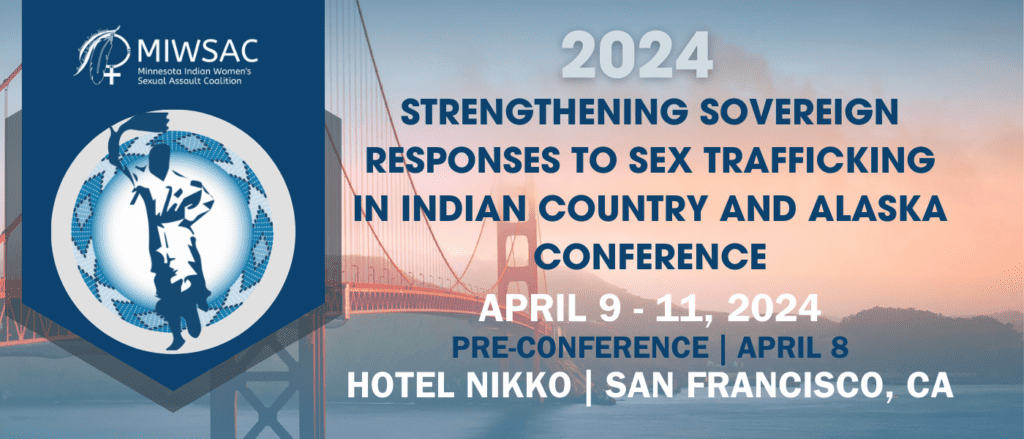
2024 Conference
The 2024 Strengthening Sovereign Responses to Sex Trafficking in Indian Country and Alaska Conference was held April 9-11, 2024 in San Francisco, CA. Nearly 350 people from tribes and communities across the country attended and participated in over 40 workshops.
Presenter Materials
Materials from the 2024 Conference listed below have been made available for your information. Please contact presenters directly with questions.
COMING SOON!
This conference is supported by Grant No. 15JOVW-21-GK-02236-MUMU awarded by the Office on Violence Against Women, U.S. Department of Justice. The opinions, findings, conclusions, and recommendations expressed in this conference are those of the author(s) and do not necessarily reflect the views of the U.S. Department of Justice, Office on Violence Against Women.

